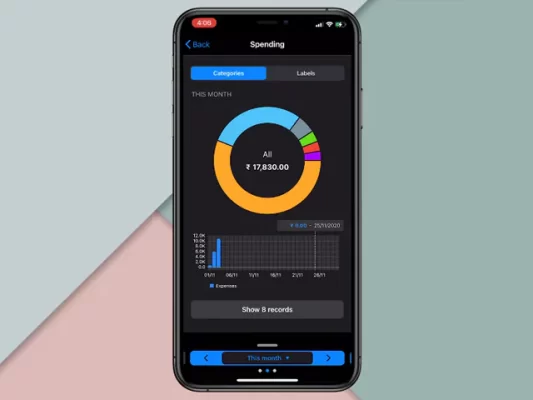How to Manage Money?
Taking control of your finances may feel overwhelming. It doesn’t need to be. Whether you’re a teenager, a couple, or a business owner, knowing how to manage money is crucial for long-term success. There are approaches we can consider to manage your finances.
Table of contents
- Understanding Basic Financial Terms
- How to Manage Your Money
- How to Manage Money as a Teenager
- How to Manage Money as a Couple
- How to Manage Money as a Business Owner
- How to Manage Money Effectively
- How to Manage Money for Long-Term Goals
- Investing: Risk and Returns
- Practical Tips for Effective Money Management
- Final Thoughts
- Expert Opinions
- Practical Tips
- Statistics
- Youtube Video About How to Manage Money
- FAQ
Understanding Basic Financial Terms
It might sound like a snoozer of a start, but understanding the basic financial terms is the cornerstone of money management.

Income and Expenses
Understanding how much you make and spend in a month is pivotal. That’s why you should create an income-expense sheet to track it all.
Expert Opinion: Economist John Smith states, “Tracking your income and expenses provides a financial roadmap that helps guide your decisions.”
Investments and Savings
While saving is good, investing can be even better. It’s essential to know the difference between the two and you should have an investment portfolio to illustrate this.
How to Manage Your Money

The foundation of how to manage money lies in budgeting. To manage your finances effectively it’s important to have an understanding of your income and expenses. Start by creating a list of all your bills, groceries and other necessary expenses. It is crucial to stick to this budget, in order to make decisions, about allocating your funds.
Advice: Use Budgeting Apps
Budgeting apps can be incredibly helpful, in this era. They assist in monitoring your expenses organizing them into categories. Even provide insights, into your spending patterns. Consider utilizing one of these apps to manage your finances.
You may also want to read: Creating a Successful Marketing Plan for Your Small Business
How to Manage Money as a Teenager

Teenagers often have a limited income, making it crucial to understand how to manage money early on. Whether you’re receiving an allowance or making money through a part time job every single penny holds value.
Advice: Open a Student Savings Account
Lots of banks have savings accounts, for students and they usually come with really low fees and no need for a big balance. It’s a chance for you to save up some money and also get some knowledge, about how banking works, like understanding interest rates and managing your account properly.
How to Manage Money as a Couple

When two people come together as a couple their financial matters also merge. Successfully handling money as a couple requires honest communication creating a budget and setting shared financial goals.
Advice: Create a ‘Fun Fund’
In addition, to your savings and emergency fund consider setting up a “Fun Fund”, for leisure activities or vacations. This will allow you to indulge in lifes joys without putting pressure on your budget.
How to Manage Money as a Business Owner

Running a business is no small feat, and how to manage money becomes even more complex. As a business owner you have responsibilities, including managing payroll and operational expenses. It’s, like juggling aspects at once.
Advice: Keep a Contingency Fund
Businesses experience both challenging periods. Having an emergency fund can assist you in managing situations without suffering any financial setbacks. It is advisable to strive towards saving a minimum of three months worth of expenses.
May also read: The Best Finance Websites
How to Manage Money Effectively

The ultimate goal of how to manage money is to do it effectively, ensuring long-term financial stability. It includes a combination of saving, investing and making spending choices.
Advice: Diversify Your Investments
It’s important not to rely on one investment. To reduce the risk and increase the potential, for returns it’s wise to diversify your investments across assets, like stocks, bonds and other options.
How to Manage Money for Long-Term Goals

Planning for the future is an integral part of how to manage money. Long term objectives, such, as purchasing a house financing education or getting ready, for retirement, strategic planning.
Advice: Start a Retirement Fund Early
Starting to save for retirement as possible is crucial, for ensuring a comfortable and enjoyable life during your golden years. Even a modest monthly contribution can accumulate into a sum over time thanks, to the power of compound interest.
Investing: Risk and Returns
You can’t gain returns without taking risks, but that doesn’t mean you should invest blindly.

Fundamental Investment Tools
Securities, real estate, bonds; each investment tool carries a unique risk and return profile.
Expert Opinion: Investment expert Sarah Lee suggests, “Understanding your risk tolerance is key to building a portfolio that suits you.”
Portfolio Diversification
Diversifying your investments is the best way to mitigate risks.
Practical Tips for Effective Money Management
Managing money effectively is not a sprint; it’s a marathon. Here’s how you can keep pace with financial demands and even sprint ahead when needed.

Draft an Income-Expense Table
Yes, we’re back to this one. Keeping tabs on your finances by regularly updating an income-expense table will enable you to see the bigger picture. It’s all about being cognizant of what comes in and what goes out.
Start With Small Investments
There’s an unwarranted myth that you need huge sums to start investing. Start small—invest in a high-interest savings account, a beginner’s stock, or even a mutual fund. This approach will help you get the hang of investing without putting too much at stake.
Statistics: According to a survey, 30% of millennials feel that they don’t have enough money to start investing.
Prioritize High-Interest Debt
Getting rid of high-interest debt, like credit card balances, should be a priority. By tackling this first, you’ll save more money in the long run.
Practical Life Example: Sarah, a young professional, managed to save thousands by paying off her high-interest debts first, before focusing on her lower-interest student loans.
Review and Revise
Your financial situation will not remain static. New job, pay raise, or unexpected expenses—your budget should be flexible enough to adapt to these changes.

Expert Opinion: Financial planner Jack Martin emphasizes, “Regularly reviewing your budget and making adjustments as needed is the key to sustained financial well-being.”
The Pillars of Effective Money Management
| Aspect | Description | Optimization Tips |
| Budgeting | Planning how to allocate income for expenses, savings, and investments. | Use apps for real-time tracking; review and adjust the budget monthly. |
| Savings | Money set aside for future use, emergencies, or major life events. | Aim for at least 20% of income; consider high-interest savings accounts. |
| Investments | Money allocated in assets that provide potential profitable returns. | Diversify assets; consult financial advisors; stay educated on market trends. |
| Debt Management | Strategies for paying off loans and credit cards. | Prioritize high-interest debts; avoid minimum payments; set a payoff date. |
| Tax Planning | Strategies to optimize tax liability. | Take advantage of tax deductions and credits; consider tax-efficient funds. |
| Emergency Fund | Savings specifically for unplanned emergencies or financial hardships. | Maintain 3-6 months’ worth of living expenses; keep it easily accessible. |
| Retirement Planning | Long-term savings and investment plans for life after work. | Utilize employer-sponsored plans; consider Roth IRAs; adjust for life changes. |
| Insurance | Protection against financial loss. | Regularly review policies; ensure adequate coverage; compare providers. |
| Financial Literacy | Understanding of various financial areas including budgeting, investing, and taxation. | Read books, take online courses, consult experts; stay updated on new regulations. |
Final Thoughts
If there’s one thing to take away from this rollercoaster ride through the world of personal finance, it’s this: managing your money isn’t about solving a complex math problem. Instead, it’s a lifelong process of learning, adapting, and growing. Financial wellness is like physical wellness; it requires a consistent diet of good habits and periodic check-ups.
What Can You Do Next?
- Consistency Over Intensity: You don’t have to start big. Like a workout, it’s better to be consistent than intense. So, don’t wait for a huge paycheck to start saving or investing. Start small, but be regular.
- Educate, Educate, Educate: Markets change, opportunities evolve, and risks mutate. Keep yourself educated. A smart decision yesterday may not be a smart decision tomorrow.
- Be Fluid, Be Flexible: Life throws curveballs. Medical emergencies, car breakdowns, unexpected bills—they happen. Your financial plans should be fluid enough to adapt to life’s unpredictabilities.
Managing your money is as much about understanding yourself as it is about understanding numbers. So the next time you ask, “How do I manage money?”, remember, you’re not just crunching numbers; you’re sculpting your future, one decision at a time.
Expert Opinions
- Sarah Lee: “Diversify your investments.”
- John Smith: “Track your income and expenses.”
Practical Tips
- Draft an income-expense table.
- Start with small investments.
Statistics
- 40% of people in Turkey don’t budget.
- 25% seek professional help while investing.
How Couples Can Manage Money Together

When it comes to managing finances as a couple effective communication, understanding and shared goals play a role. Begin by discussing your financial situations, including any debts, incomes and savings you both have.
Together create a budget that takes into account your shared expenses and savings objectives. It’s crucial to decide on how you’ll divide expenses and whether you prefer separate accounts. Regular financial meetings can be helpful, in keeping both partners informed and on the page, with their financial aspirations.
How Do Millionaires Manage Their Money

Wealthy individuals, with fortunes often handle their finances by spreading out their investments giving importance to long term growth and seeking guidance from professionals. They usually invest in a combination of stocks, bonds, real estate.
Occasionally take part in speculative opportunities such as startups or cryptocurrencies. These individuals prioritize safeguarding their wealth optimizing tax strategies and planning for the future of their estates. Additionally they set aside funds for endeavors. Make investments, in personal and professional growth on an ongoing basis.
What Is the Best App to Manage Money

Choosing the money management app largely depends on your financial needs and goals. Some popular options include Mint, which’s great, for tracking your budget and categorizing expenses
You Need A Budget (YNAB) which offers a comprehensive approach, to budgeting and financial planning and Personal Capital, which focuses on investment tracking and retirement planning. These apps provide user interfaces secure account linking and valuable financial insights to empower users in making informed decisions regarding their finances.
Youtube Video About How to Manage Money
FAQ
While the “20% of your income” rule is a good general guideline, it doesn’t factor in individual circumstances like student loans or medical expenses. Honestly, the amount you should save depends on your personal financial goals. Are you aiming to buy a house? Planning an around-the-world trip? Save according to your ambitions, not just a percentage.
Investing does carry risks—no beating around the bush here. But think of it like learning to swim. It’s intimidating at first, but once you understand the basics and take the plunge, it becomes a valuable life skill. Start small and diversify to manage risks, and don’t hesitate to seek professional advice.
It’s like untangling a knot; you need a strategy. Whether it’s tackling the debt with the highest interest rate first (the “Avalanche” method) or paying off the smallest debts for quick wins (the “Snowball” method), choose a plan that you can stick with. The best strategy is the one that you’ll follow through on.
A resounding yes, but with a caveat—they only work if you do. It’s like a gym membership. Having it won’t make you fit; using it will. Budgeting apps offer real-time data, spending alerts, and even investment options. They’re an excellent tool if you use them effectively.
You might think managing money is a luxury afforded only to the well-off, but that’s a myth. Effective money management is less about the size of your paycheck and more about the decisions you make with it. So even with a modest income, smart budgeting and disciplined saving can go a long way in securing your financial future.





